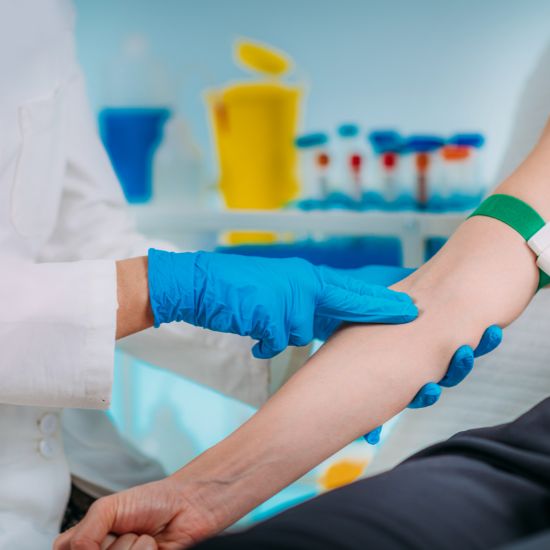What is Phlebotomy
Lance Elmore; CMA & EMT-B | Reviewed March 2023
Phlebotomy is a complicated word for the process of getting blood drawn. You’ve probably gotten blood drawn for a medical diagnosis or procedure before, which means you may already have experience with phlebotomy!
A simple blood test can be the best way to get information about your health. When you get blood drawn, it will be sent to a lab for analysis and the results will provide you with more details on your internal wellbeing. Often, a blood test is the best way to receive a medical diagnosis that can impact your life.
What can you learn when you get blood drawn? Many things! Getting blood drawn and tested can tell you about the health of your heart, liver, or other organs. It also tells you about your red and white blood cells. It can also help with early detection of serious illnesses. These are all important indicators to your overall health and can help you make educated decisions on your future wellness plans.

Phlebotomy is an essential part of the healthcare process. The certified practitioners of phlebotomy, called phlebotomists, play a key role in patient care. They assist a patient before, during, and after getting blood drawn. They must be comfortable with patients in a one-on-one setting, in addition to being trained in the technical aspects of drawing blood.
Where Does Phlebotomy Happen?
Most medical offices will also have a phlebotomy office. If there is not a phlebotomy office located within a provider’s practice, there will be options for a patient to find a phlebotomist nearby that is able to share information with the necessary providers.
What is the Process of Getting Blood Drawn?
There is no need to be worried about getting blood drawn. A phlebotomist is highly trained to make the patient as comfortable as possible. It might look something like this:
- Receive the order for a blood test from a primary care physician or specialist
- Visit a phlebotomist within your health system - maybe even in the same office as your provider!
- Wait for your results from the lab
- Discuss the results with a provider to take the next steps for your health
It really is that simple! Phlebotomy is critical in continued patient care. Without it, many questions would go unanswered for patients and providers.
